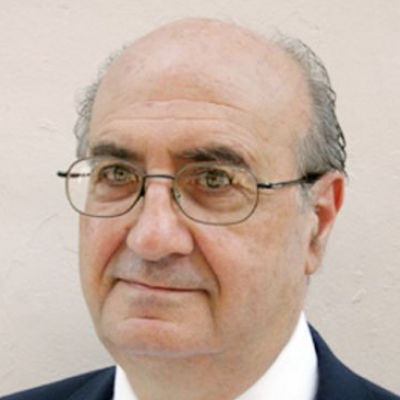The Rise and Fall of Diego Maradona: A True Symbol of Argentina
Why Maradona’s life and death has reverberated throughout the world.
November 28, 2020

Diego Maradona has died — and with him died one of the greatest soccer players of all time.
In many ways, Maradona exemplified all things Argentine. He rose from extreme poverty to unprecedented wealth, only to squander much of that wealth.
Maradona’s great skills were accompanied by an overextended ego and inability to live in the “real world.” The admiration paid to him by non-Argentines accompanied by their equal loathing of his blatant disrespect for the rules of the game.
Half-angel, half-devil
All of that was on full and laser-focused display in the quarter-final match between Argentina and England during the 1986 World Cup in Mexico.
In that match, Maradona’s legacy was cemented forever by his two goals against the English: The first one is notorious because it was scored irregularly with his hand, to which he readily admitted (but also vainly referred to as “the hand of God”).
And then, there was the eternal majesty of his second goal. Maradona ran like a ballet dancer for 60 yards, out-dribbling five English opponents as if they were cardboard cutouts — before leaving goalkeeper Peter Shilton on his backside and sending the ball into the net.
Argentina won the match 2:1 and eventually the World Cup against Germany. But the combination of the two goals against England led the French newspaper L’Equipe to describe him as “half-angel, half-devil.”
Maradona and the character of Argentines
Maradona’s arc of life, in a remarkable way, is a reflection of Argentina’s modern history.
After adopting a new constitution in 1853 and introducing institutional reforms, Argentina rose from a poor country to one that was among the most developed countries in the world by the beginning of the 20th century.
In fact, in 1913, Argentina’s GDP per capita stood at 72% of that of the United States. Argentina held a great deal of promise for its citizens. And many Argentines have continued to live in that dream world although its time has long passed.
A golden past, long passé
Following the 1930s, Argentina fell into a steep and steady decline and today its GDP per capita is a mere 18% that of the United States.
In the main, this decline is due to sheer and continuous economic mismanagement — as well as unreasonably high expectations by the Argentine people.
Under Juan Perón — and countless presidents after him — Argentina, therefore, resorted to infinite borrowing to live in the world it once knew.
Debt junkie
At this juncture, it is for nearly a century that Argentina has been a very pale shadow of its glorious former self. Argentina is addicted to consumption and debt.
Worse, it is a serial debt defaulter — funded over and over again by the international financial community apparently still blinded by the country’s long-gone golden days.
Stuck in reverse
In Argentina’s case, the glorious past of once being one of the largest economies in the world has lived in the minds of Argentines forever — except that the “footballing” days of Argentina’s economy have long been over. But the thirst for the heydays never subsisted.
This borrowed money is Argentina’s drug to maintain a lifestyle of a rich nation. Argentines soak it up and live — for brief periods of time — in relative luxury reliving their “footballing” days, only to crash yet again when they must pay the bill. What follows are times of economic and – yes — national depression.
From Maradona’s grace-cum- bulldozing…
Likewise, Maradona, who was born in poverty, became a very successful footballer with seemingly unlimited potential.
He dazzled audiences globally by providing a seemingly impossible combination of the unstoppable forward power of a mighty bulldozer with the utter grace of a fast-footed ballet dancer. For that, Maradona was rewarded with countless awards — and loads of money.
… to Maradona’s steady fall
From the Olympus of being the best footballer in the world, he went on a downward tailspin, addicted to drugs supplied by a sheer endless list of dealers. His health declined, cocaine caused heart disease and he suffered from his first heart attack at the age of 43.
Between his active career and his ultimate and premature death, Maradona was aided and abetted by so many who wanted to bathe in his former glory.
They awarded him with well-paid coaching jobs for which he was always under-qualified. Without them, his reckoning with reality might have come early and his defeat from drugs and alcohol might have been avoided.
Maradona and monetary policy
But Maradona’s influence even extended beyond the soccer field into economics and history.
Perhaps the most amazing tribute to Maradona came in 2005, when Lord Mervyn King, then Governor of the Bank of England, explained in a speech how Maradona’s two goals against England perfectly explained monetary policy.
The first one, according to Lord King, summed up the old “mystery and mystique” approach to central banking. It was “unexpected, time inconsistent and against the rules.”
As for the second goal, Lord King saw it as a parallel to “the power of expectation in the modern theory of interest rates.” Maradona’s 60-yard dash outplaying five English opponents was only possible, King explained, because he ran in a straight line when all English players expected him to verve either left or right.
The “King” was serious
And in King’s view, successful monetary policy could work in a similar way if central banks stayed focused on their goal and defied market expectations.
In that way, central banks were able to influence economic outcome without changing rates by much, as the Bank of England — according to King — had successfully demonstrated in years prior.
It is no surprise that the former Governor of the Bank of England saw this analogy, given the historically contentious relationship with Argentina and the sting of the 1986 defeat through — as many English see it — Maradona’s act of fraud.
A historical revenge
From the Argentine perspective, the 1986 World Cup quarterfinal also was far more than a regular — albeit important — football game.
Its result was an act of revenge. Maradona’s irregular first goal, and the pride with which he defended the unfairness of it, was payback — small as it was — for Britain’s military victory over Argentina in 1982 during the Malvinas/Falkland Islands conflict.
That short war over a set of islands off the shore of Argentina, but under British control is as unforgotten by Argentines as Maradona’s “hand of God” goal is by the English.
Maradona and the war over the Malvinas
The British victory galled all Argentines, who have historically considered the Malvinas as their national territory.
Winning the World Cup four years later, most importantly by beating England in the process and doing so — in part — through an irregular goal by the country’s God-like figure (Maradona) soothed the hurt national feelings of many Argentines over the loss of the Malvinas — populated by just 3,000 people and 500,000 sheep.
Who is the best footballer ever?
Maradona is often placed with Pelé, Messi and Cristiano Ronaldo as one of the four best soccer players ever.
That debate is a futile one. All were and are unique players with vastly different skill sets. Nobody can beat Pelé on his effortless, elegant play. Nobody can beat Messi on unmatched combination plays with his teammates.
Nobody can beat Cristiano on his scientific, self-obsessed approach to personal fitness that keeps him as valuable at 35 as he was 10 years ago. And nobody can replicate the sheer magic when Maradona caressed the ball.
Conclusion
But in one sense, and without any intent on his part, Maradona stands out. His impact has been felt way beyond the hundred yards long soccer pitch.
In his case, this was not due so much through contributions to charities which many players support. But simply because of the euphoria and the tragedy that defined his life.
And yes, today Argentina is crying for him and may a little bit for itself.
Takeaways
In many ways, Maradona exemplified all things Argentine. He rose from extreme poverty to unprecedented wealth -- only to squander much of it.
Maradona’s great skills were accompanied by an overextended ego -- and an inability to live in the real world.
Maradona had the combination of the unstoppable power of a bulldozer -- with the grace of a fast-footed ballet dancer. But his influence extended beyond the soccer field.
Argentina rose from a poor country to one that was among the most developed countries in the world by the beginning of the 20th century.
It is for nearly a century that Argentina has been a very pale shadow of its glorious former self. It is addicted to consumption and debt.
Borrowed money is Argentina’s drug to maintain a lifestyle of a rich nation. Argentines soak it up to live in relative luxury -- only to crash yet again.
Authors

César Chelala
César Chelala is a global health consultant and contributing editor for The Globalist.

Stephan Richter
Publisher and “Editor-in-Chief of The Globalist, and Director of the Global Ideas Center, a global network of authors and analysts.

Uwe Bott
Uwe Bott is Chief Economist of The Global Ideas Center and Senior Editor at The Globalist. [New York/United States]
